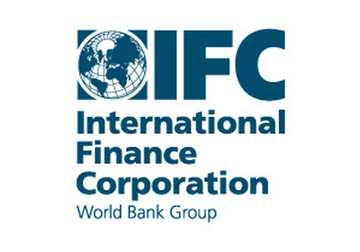
The International Finance Corporation (IFC) will assist Moldova in strengthening the agri-food sector and stimulating exports.
This is provided for by the Cooperation Agreement, which was signed by the Ministry of Agriculture, Regional Development and Environment of Moldova and the International Finance Corporation (IFC), a member of the World Bank Group. The document will be implemented in partnership with the Swedish Agency for Development and International Cooperation. According to the Ministry of Agriculture, the signing of the agreement launched a new stage of the investment climate reform project, designed to help increase the competitiveness of the agricultural market in Moldova, increase exports to the EU, create new jobs and stimulate economic growth. The existing Moldova-EU Association Agreement allows local businesses to export products to European markets, but some local producers do not comply with animal health and food safety requirements. This can also be explained by the lack of a specific legal framework and monitoring programs similar to those in the EU. The International Finance Corporation (IFC) has already helped the Moldovan government to optimize agri-food norms in the first phase of the Investment Climate Reform Project over eight years of its implementation. As a result of these efforts, IFC seeks to create a conducive business environment by introducing the necessary legal framework, including in the areas of product safety, animal by-products, waste management, and food traceability. This will help create an enabling environment for agri-food producers to stimulate exports between countries, including the EU market, which is currently closed to Moldovan livestock products. Minister of Agriculture Ion Perju expressed his conviction that the proper implementation of the project will contribute to the development of a highly productive and competitive agricultural sector with increased attention to opening up the EU market for livestock products; strengthening the export potential of the horticultural industry; strengthening the food safety system, including laboratory capacity, IT systems and regulatory frameworks for the traceability and safety of animal products, etc. According to the minister, the consulting services provided through the IFC will also strengthen the capacity of the organizations involved in this segment and will facilitate bringing the agri-food sector in line with existing European norms and standards. As noted, one of the problems in Moldova is the lack of data on potential investors and business partners. To address this issue, IFC will contribute to the creation of a public digital Financial Reporting Registry that provides public access to the financial statements of private companies and SOEs. This will ensure greater transparency of the process, attract more investment in Moldova's agri-food sector and strengthen trade ties with the business community. In turn, IFC Regional Manager for Ukraine, Belarus and Moldova Jason Pellmar noted that one of the strategic priorities of IFC in Moldova is to strengthen the agri-food sector. “Our goal is to help Moldova take full advantage of the Deep and Comprehensive Free Trade Agreement with the EU. This will allow the country to penetrate new international markets on favorable terms and at lower costs. Digital solutions will not only create incentives for businesses to connect with Moldovan companies, but will also stimulate and support investment, helping to stimulate competitive markets and accelerate economic growth,” he said. // 17.02.2021 - InfoMarket.






